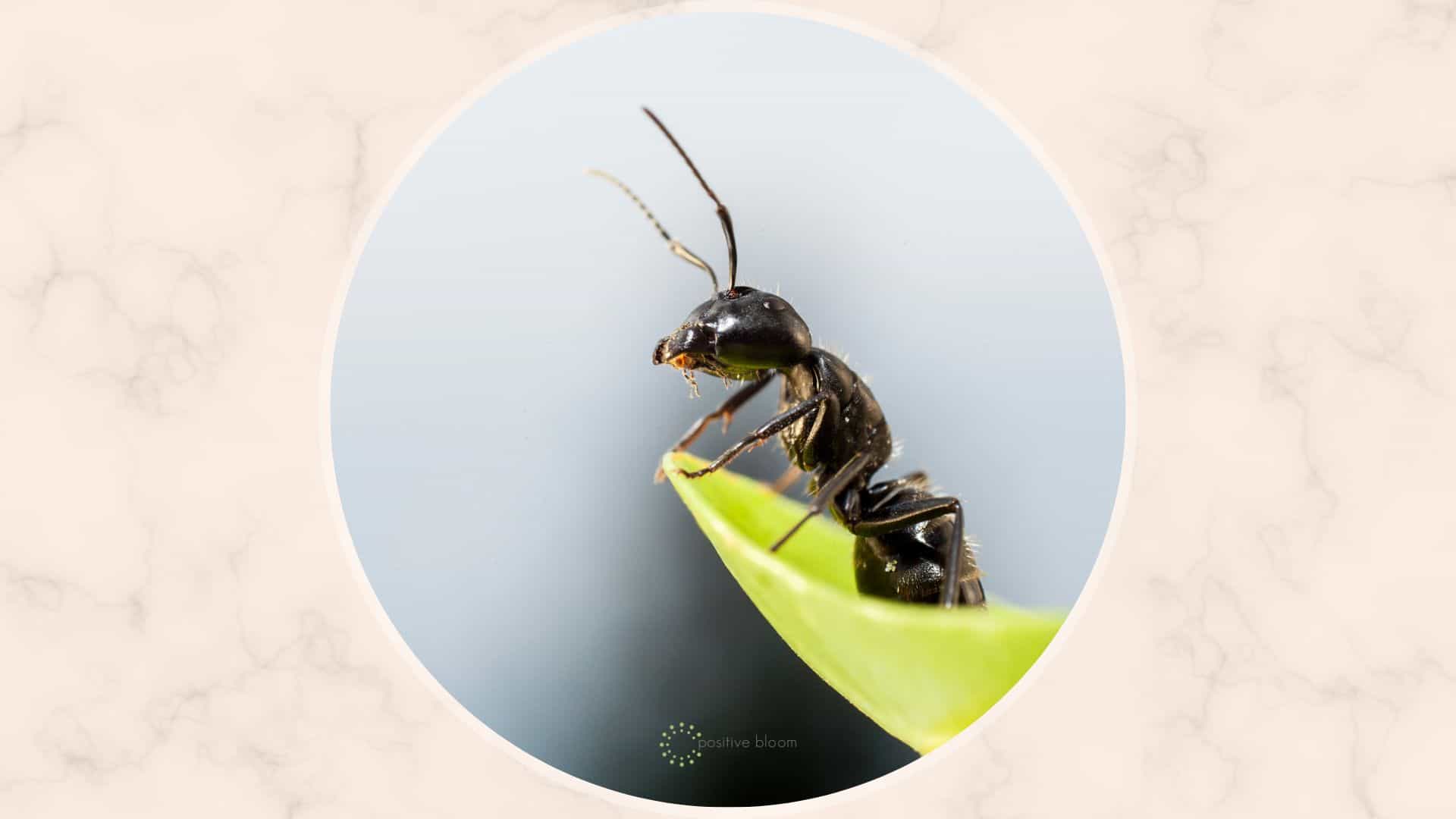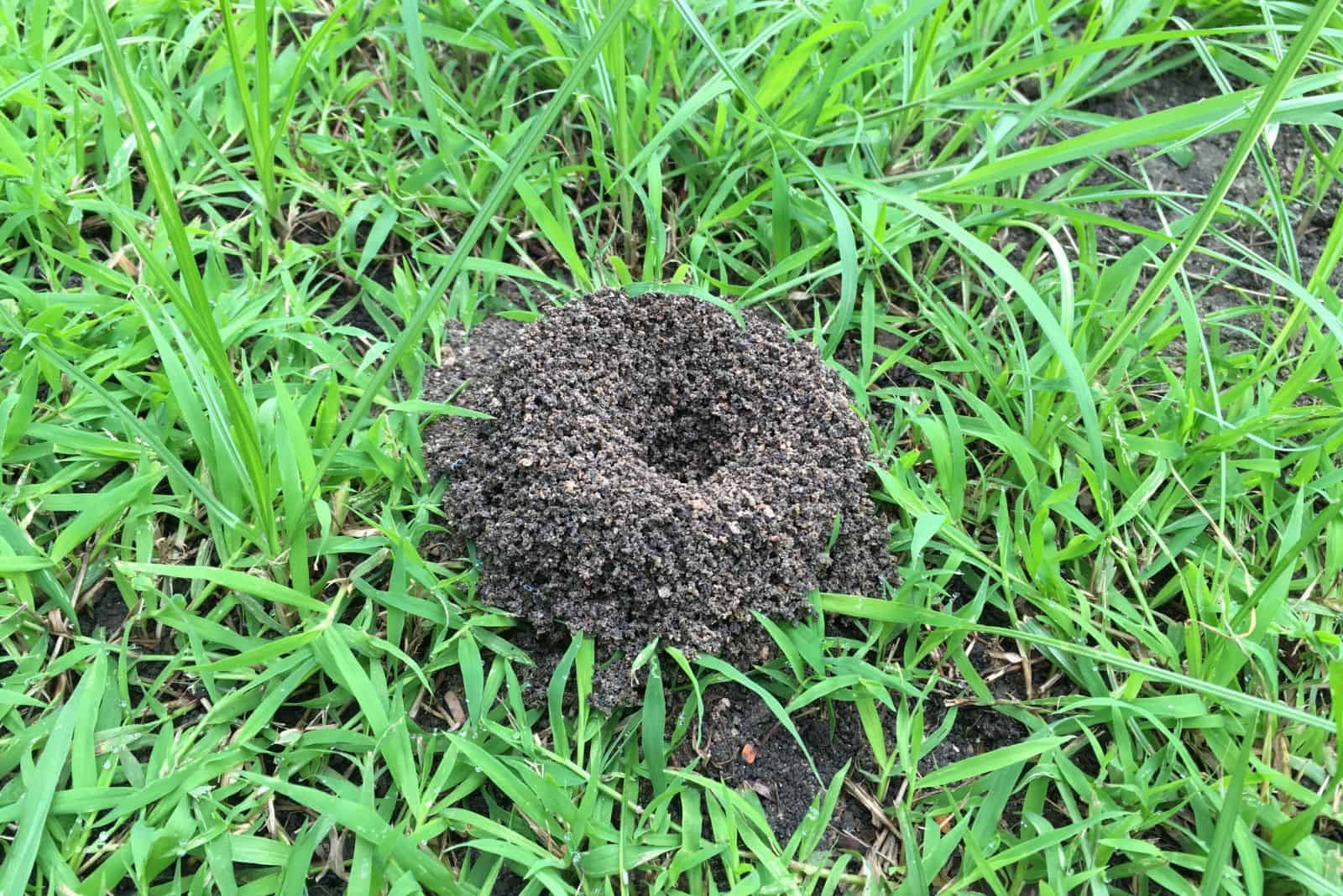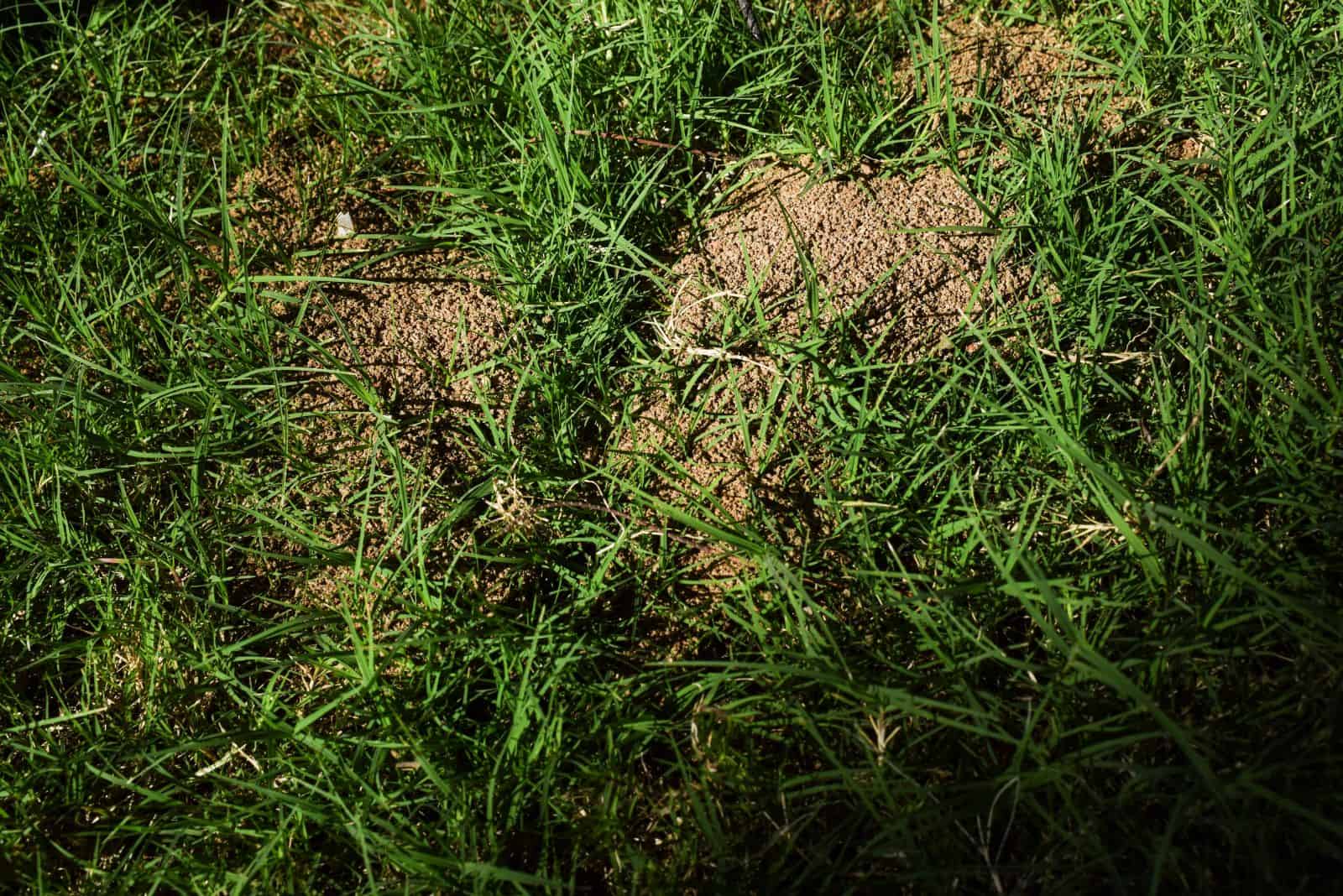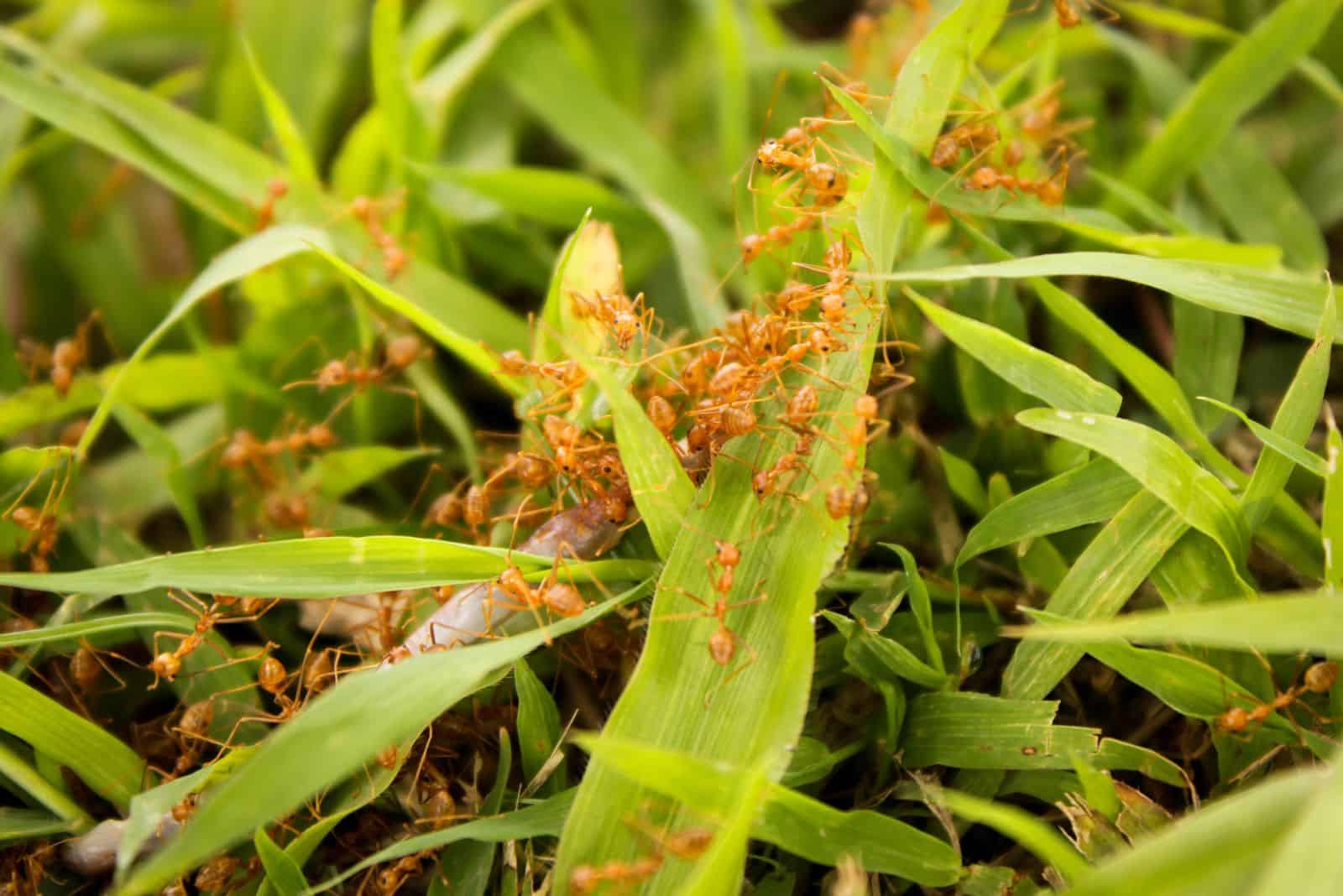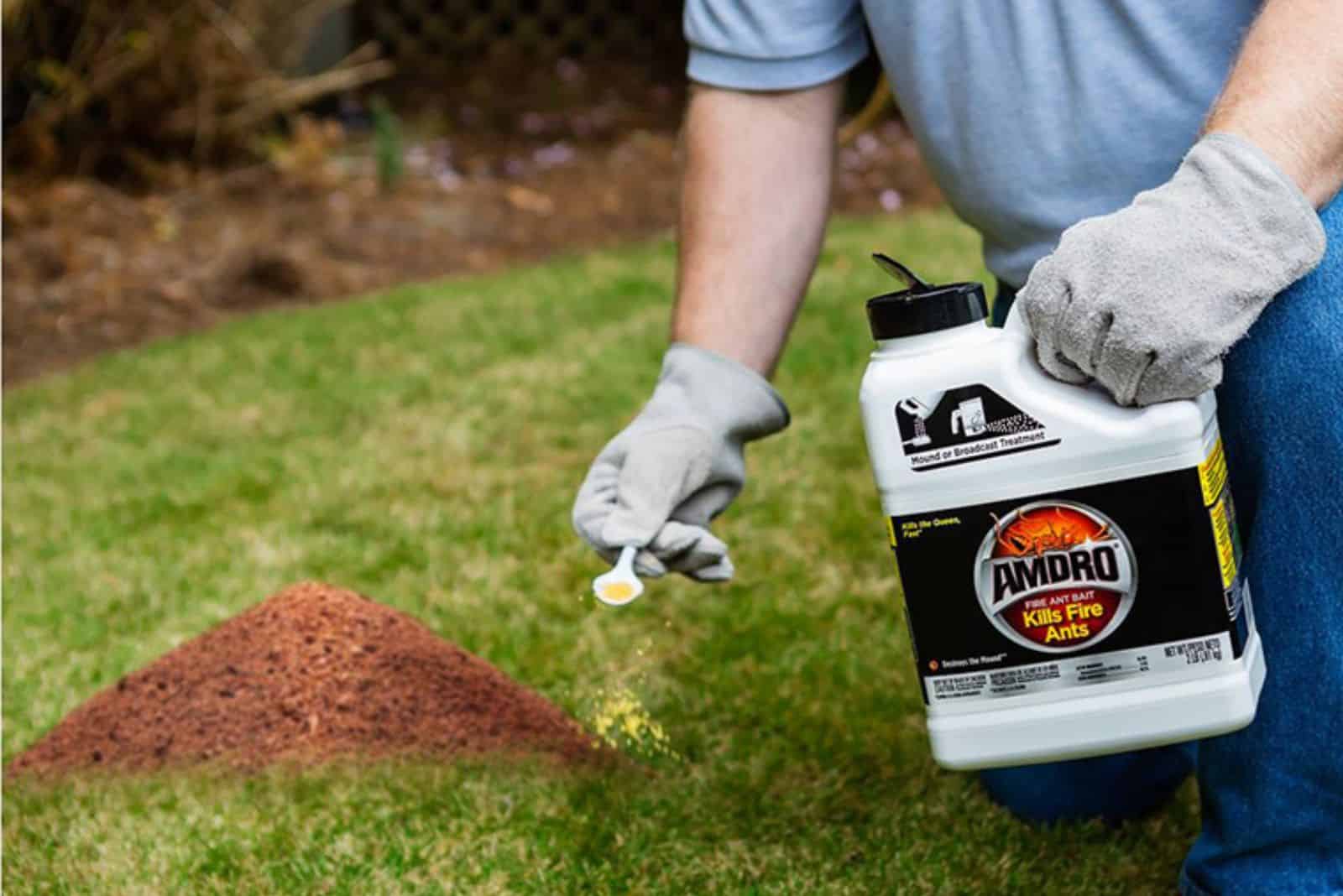Taking care of a new or already established lawn isn’t as easy as many may think. You have to water it constantly, fertilize it, overseed it, top dress it to treat damaged areas, and more.
And imagine ants appearing on top of all that!
These pesky little insects can do all sorts of things to your lawn, but what many want to know is, “Do ants eat grass?”.
They can do all sorts of damage to your lawn, but there are some benefits of having these nuisances around, such as loosening the soil, breaking down dead insects and animals, etc.
Therefore, we’ll discuss some ant species that love building mounds in your yard, as well as some excellent tips for getting rid of them.
Finally, ants aren’t the only insects that can invade your lawn; armyworms, grubs, etc. can also appear in your grass.
Now, let’s tackle these questions!
Do Ants Eat Grass?
Ants technically don’t eat grass, but they can do other types of damage. For instance, their mounds can hurt the grass roots, leading to brown spots appearing on your lawn.
They don’t feed on leafy parts because they don’t contain enough starch for them. So, don’t lose it if you notice ants on your pepper plants; they’re not there to feed on your veggies.
Ants Eat Grass Seeds
Even though ants don’t consume grass, they do feed on grass seeds. These parts contain enough starch for them to survive, and they even steal them and take them back to their colonies.
This robbery can lead to uneven lawns and brown patches that don’t heal, which is why homeowners should remove ant hills as soon as they notice them.
What Can Ants Do To A Lawn?
We already mentioned that ants can eat and steal grass seeds, which leads to brown patches, but is that the only thing they do?
Of course not! An ant infestation can loosen the soil, break down dead insects and animals, attract aphids and mealybugs, and lead to the appearance of ant mounds.
But don’t think that all the consequences of ant colonies are bad; there are some good things they can do, and we’ll discuss them below.
Steal The Grass Seeds
Ants stealing grass seeds doesn’t seem like a big deal, but if there are large colonies out there, they can do great damage to your lawn.
Imagine you’ve finally decided between zoysia and bermudagrass, overseeded them, and then some insects steal so many seeds that you’re left with bare patches again!
They Encourage The Presence Of Sap-Sucking Pests
When we see ants on our plants, we immediately worry that they are eating them. However, they are actually attracted to honeydew (a sugary substance) that other pests take from our veggies, grasses, etc.
Therefore, if you notice that large numbers of ants are in one spot or on one plant, it could be a sign that you have an aphid or mealybug infestation in your yard.
And although ants themselves aren’t harmful to plants, they encourage the presence of insects that are; a toxic relationship indeed.
Build Ant Mounds
When we were kids, ant hills were the best thing since sliced bread. But as homeowners, we understand how these mounds can hurt our lawns.
Ant hills make the surface uneven, which makes mowing quite difficult.
These mounds are unsightly and can damage the grass roots. Ants feed on the beneficial fungi in soil and make tunnels which increase aeration.
And although a couple of tunnels could benefit your lawn, a huge ant hill implies that there are many tunnels underground, making the soil unable to retain moisture for long.
Loosen The Substrate
Ants create tunnels in the soil, and this can make the garden soil looser. In many cases, this is a good thing as it prevents waterlogging.
However, if the colonies are huge, the grass roots won’t be able to attach to the substrate properly, so they won’t be able to absorb moisture and minerals effectively, eventually leading to yellow and brown discolorations.
Break Down Dead Insects And Animals
One of the main benefits of ants for your garden ecosystem is that their food sources include dead insects and other animals.
They can break them down into forms that beneficial soil microbes can use, and in return they enrich the soil with nutrients.
What Types Of Ants Damage Grass?
The good news is that there are grass types suitable for Florida, but the bad news is that there are also ants that can invade your lawn and yard.
Thankfully, not all ants will do this, but fire ants, farming, field, and army ants will make colonies.
Field ants – Field ants aren’t just one type, rather they are different varieties that we frequently find outside. They create mounds that can get about 2 feet tall and become an eyesore in your garden, they can hurt the grass roots and make mowing difficult.
Farming ants – Farming ants also include more than one species, although we don’t fear their mounds as much. These lawn pests exude substances that attract aphids to feed on them. However, aphids will first colonize your garden, and ants won’t be able to eat all of them.
Army ants – These ants are constantly on the go, so they don’t have large mounds, rather they devastate the foliage and grass blades that are in their way.
Fire ants – This species lives in large colonies that house up to half a million ants. They can create many mounds and underground tunnels, loosening the soil, stealing grass seeds, and destroying the roots.
How To Exterminate Ants From Your Yard
Large ant colonies are a huge hindrance to your gardening experience, which is why we all want to know how to get rid of them for good (especially if you’ve spent hours researching the differences between ryegrass and fescue).
Below, you can find some natural methods, such as using boiling water, homemade concoctions, and pesticides.
And if the colony isn’t that large and you just want to prevent the ants from stealing your grass seeds, you can top-dress your lawn with peat moss or some other material.
Ants are seed thieves, but they usually don’t venture deep into the soil to look for them. Instead, they take the ones readily available on the soil surface.
Use Boiling Water On Ant Hills
Pouring boiling water into ant mounds is quite an effective way of destroying their colonies without poisoning the surrounding flora.
All you need to do is constantly soak the hills and ensure that the water reaches deep enough into the tunnels to kill the queen.
Once the ant queen is dead, there won’t be any new ant eggs or larvae and their population will soon drop.
Of course, the boiling water will damage the grass around it, but once the danger of ants has passed, you can sow new seeds and make your lawn green again.
Make A Homemade Insecticide
If you want to bring out the big guns, you can always mix your own concoctions to destroy the ant colonies.
For instance, you can dilute some vinegar in water and pour that mixture all over their hills and into their tunnels. However, vinegar can acidify the surrounding soil, so proceed with caution.
You can also dissolve some cedar or peppermint oil and spray it all over your garden.
Finally, a mixture of sugar and borax blended into paste will poison these lawn pests.
Use Pesticides
Sometimes, homemade remedies simply don’t work because the colonies are so large, and in that case, you might want to use commercial insecticides.
You can use sprays, granules, or powders. For instance, mixing some ant powder with the seeds or spreading it around ant hills will prevent these pests from stealing the grass seeds.
You can also use pesticides with bifenthrin as the main ingredient. Simply spread the powder around your yard, and once you water it, the ants will die when they come in contact or ingest it.
This insecticide works well for other lawn pests, including ticks, billbugs, mealybugs, fleas, leafhoppers, etc.
Finally, if you want a more organic choice, you can spread some diatomaceous earth. The particles of the sedimentary rock in it will damage the ants’ exoskeleton and lead to drying out.
Call Pest Control
And if everything else is lacking, you can always call the professionals. They can get rid of ants, termites, and fleas… they even provide tick control!
Other Insects That Damage Grass
Ants aren’t the only pests that can hurt your lawn; billbugs, grubs, and armyworms are other nuisances that can do the same.
However, we can usually get rid of them with the same pesticides, or you can call pest control.
You may sometimes notice other insects in your yard, but they don’t hurt the lawn. These are most frequently grasshoppers and earthworms. (Actually, these worms enrich the soil with organic matter, so we should try and increase their activity in our gardens.)
Final Thoughts
When we see ant colonies in our garden, we immediately ask ourselves, “Do ants eat grass?”. They don’t, but they can steal grass seeds, build underground tunnels that damage roots, make mowing difficult, and attract aphids and other pests that feed on your plants.
Not all ants are like this, but field, farming, fire, and army ants definitely are.
Luckily, you can get rid of them by pouring boiling water over them, using a vinegar solution, mixing borax and sugar together, or diluting some peppermint oil in water and spraying it all over your yard.
And if this doesn’t help, you can always use synthetic insecticides or call pest control.
Good luck, and until next time!

